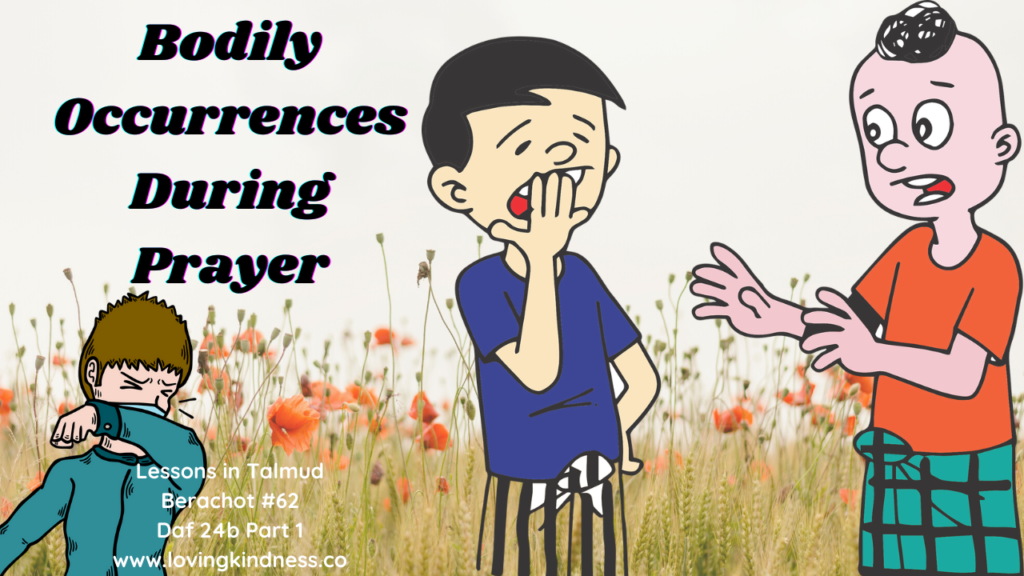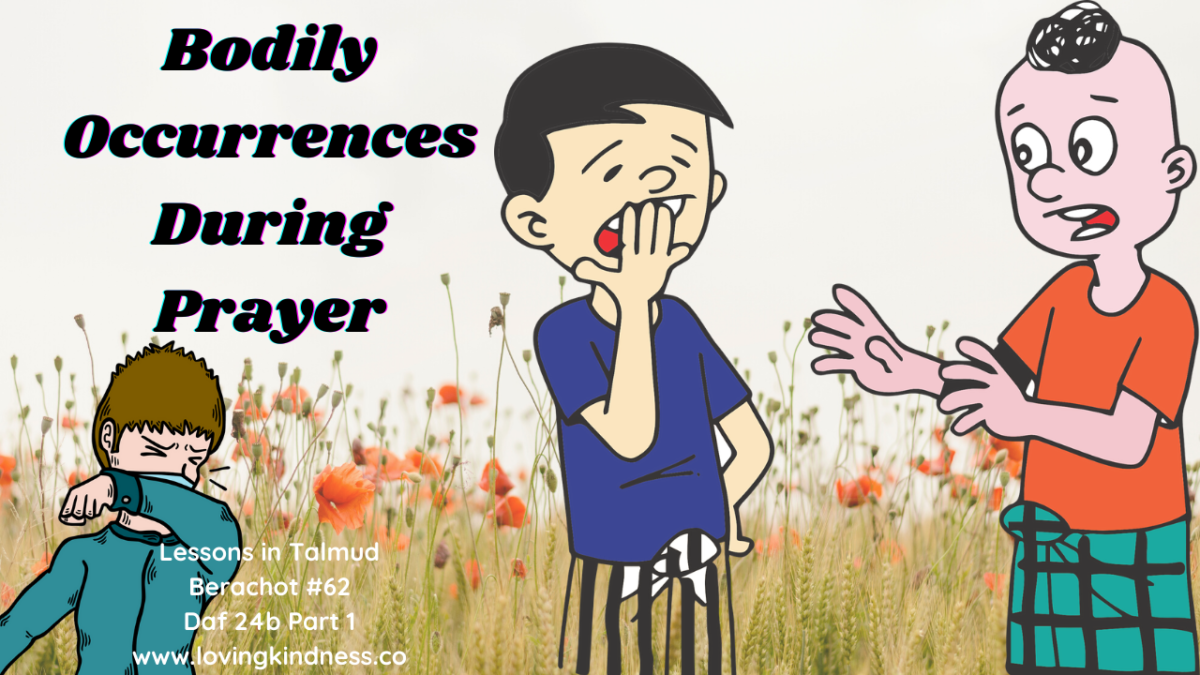
Our page today – Daf 24b in Masechet Brachot is filled with a variety of different topics related to what could be considered quite ordinary behaviour — during prayer.
Our first story brought at the very end of Daf 24a speaks about Rabbi Yehuda HaNasi – the redactor of the Mishnah. Ravina says that he saw Rebbi burping, yawning, sneezing and even spitting during his davening. It seems like odd behaviour for the great Rabbi Yehuda HaNasi. How are we to understand this story?
The Gemara discusses a variety of points of view concerning these very physical acts – and the more so that they applied to Rebbi doing them while praying.
While there are indeed times that these acts may be considered negative, it seems that being human means that we are all subject to these things happening at one point in time or another in our lives – even during prayer. But what does it all mean? Is it all negative? Is there anything positive we can say for it? The Gemara provides some interesting food for thought – especially about sneezing – when it comes from one’s nose…
What about spitting though? Is there anything positive to that? What is one to do if there is a build up of spit in one’s mouth while praying? Here, the Gemara tells us that some people are less sensitive to others – and others who are more sensitive about various physical things (like spit).
The Gemara discusses the issue of raising one’s voice in prayer. Is it permitted? Should we be concerned about others who are praying next to us or is it more important for us to hear the sound of our own voices?! Can God hear us if we pray softly, or is it important for us to raise our voices to the heavens?!
We learn an amazing teaching concerning Rav Yehuda. Rav Yehuda was opposed to making Aliyah. He believed that God had sent the Jewish people into exile (Babylonia) and that until He himself would return them to Israel (perhaps in other words at the time of Moshiach and a similar type of episode that took place with Moshe leading the entire nation out of Egypt – but in this case into Israel) — until such a time, the Jewish people should remain in Babylonia. A very unique opinion.
What is one to do if faced with a problem of excess wind in one’s body while praying? Is it permitted to let it out? And if so, is there anything one should be aware of (in terms of Halachah of course) if one releases wind during one’s prayer?
Continuing the theme of physical distractions, the Gemara discusses the issue of being in the presence of garbage/trash when one is walking and busy reciting the Keriat Shema. Should one stop reciting it? Is it permissible recite words of Torah in a place of garbage? May one even think words of Torah around places which smell and are dirty?
Our Gemara deals with some very physical things in our lives. We often fail to acknowledge our human frailty. We become so absorbed in greatness and holiness, that we tend to forget that we are after all – just physical beings. We are not angels. These pieces of Gemara bring us full circle in making us aware, that no matter how holy we become, we must not forget that we are created as physical beings with a variety of interesting physical characteristics that make us who we are. We can be aware of both of these parts of ourselves – and still become great, holy and close to God.


